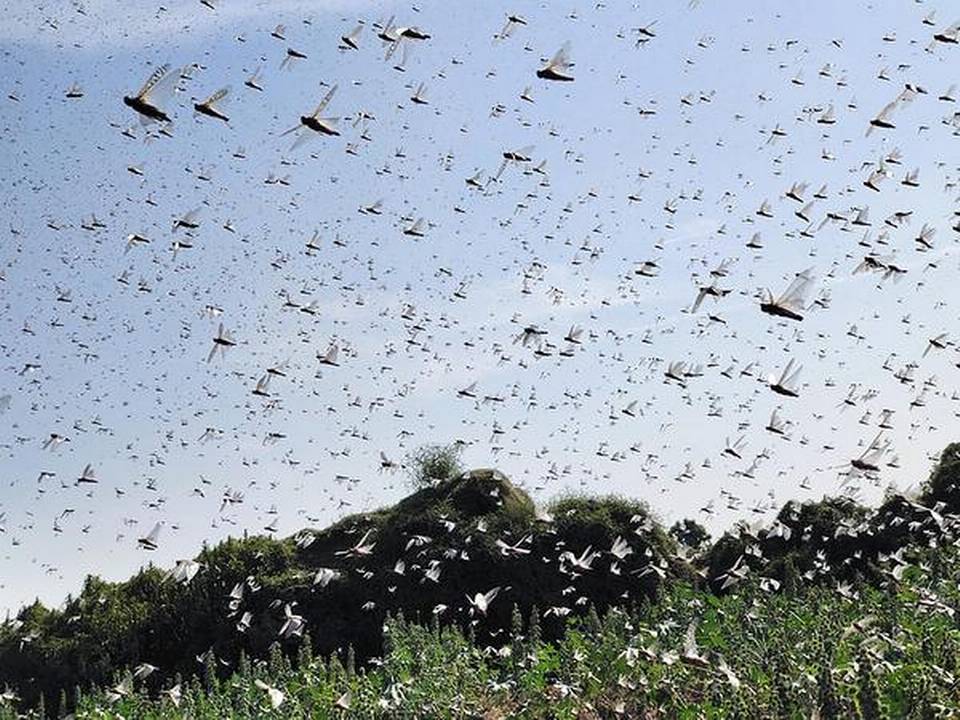Agriculture
Locust Invasion in Gujarat
- 26 Dec 2019
- 3 min read
Why in News
The migratory insect - locust has swarmed the northern parts of Gujarat, causing significant damage to agriculture.
- The locusts, known as tiddis locally, destroyed standing crops of castor, cumin, jatropha, cotton, and potato, and fodder grass in around 20 talukas.
- Gujarat has not witnessed such an invasion of locusts since 1993-94.
- The locusts emerged in February 2019 from Sudan and Eritrea in Africa's Red Sea Coast and travelled through Saudi Arabia and Iran to enter Pakistan, where they invaded the Sindh province and from there they moved into Rajasthan and Gujarat, where south western monsoon had prolonged this time.
- The UN Food and Agriculture Organisation (FAO) had issued an alert of a massive locust attack in South Asia covering Pakistan and India.
- The Locust Warning Organization (LWO) in Jodhpur also noticed the swarms and predicted their trajectory across the international border.
Locust
- A locust is a large, mainly tropical grasshopper with strong powers of flight. They differ from ordinary grasshoppers in their ability to change behaviour (gregarize) and form swarms that can migrate over large distances.
- Locusts are generally seen during the months of June and July as the insects are active from summer to the rainy season.
- Locusts have a high capacity to multiply, form groups, migrate over relatively large distances (they can fly up to 150 km per day). They can rapidly reproduce and increase some 20-fold in three months.
- Threat to Vegetation: Locust adults can eat their own weight every day, i.e. about two grams of fresh vegetation per day. A very small swarm eats as much in one day as about 35,000 people, posing a devastating threat to crops and food security.
- FAO provides information on the general locust situation to the global community and gives timely warnings and forecasts to those countries in danger of invasion.
- Locust Warning Organisation (LWO), Directorate of Plant Protection Quarantine and Storage, Ministry of Agriculture & Farmers Welfare, is responsible for monitoring, survey and control of Desert Locust in Scheduled Desert Areas mainly in the States of Rajasthan and Gujarat.




